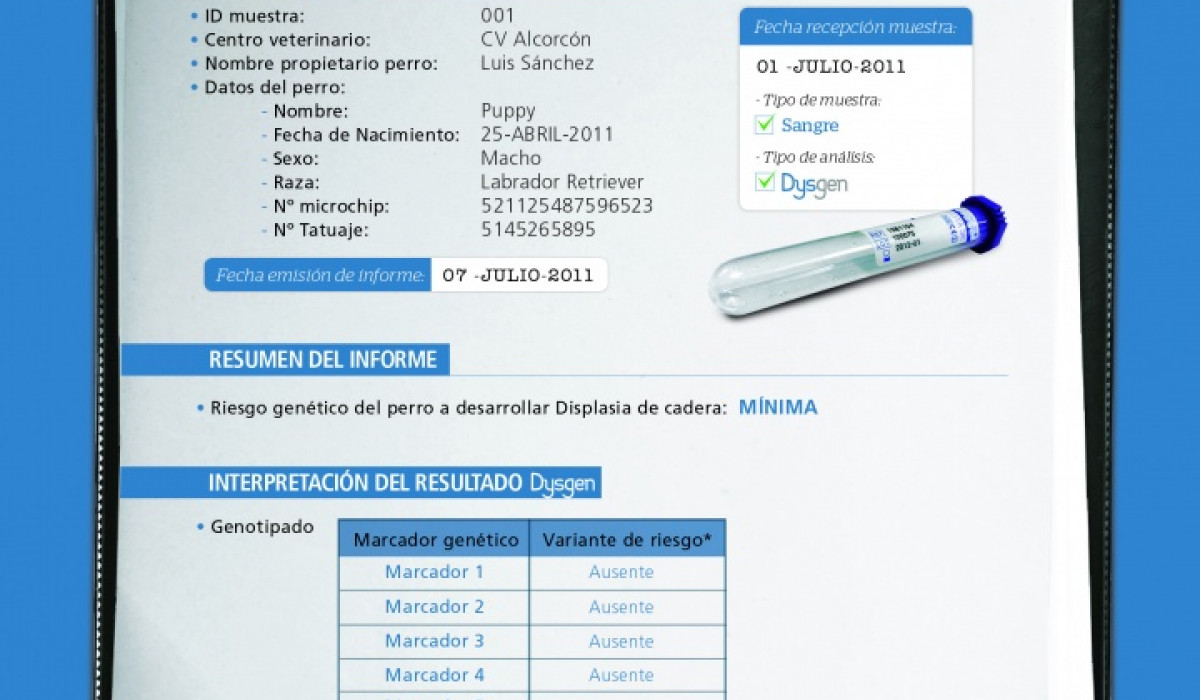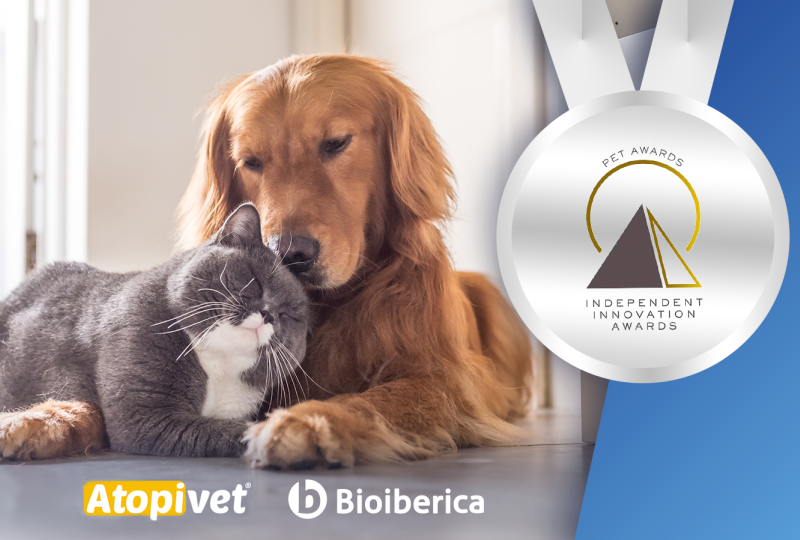Dysgen, the genetic test by Bioiberica that can predict hip dysplasia in retrievers, is scientifically endorsed by the PLOS One journal
- The prestigious journal PLOS One has published the results of the latest study that confirms the efficacy of Dysgen in the early detection of hip dysplasia in retrievers
- Canine Hip Dysplasia is one of the most prevalent musculoskeletal disorders in dogs

The April issue of PLOS One published the most recent study that confirms the efficacy of Dysgen in evaluating the genetic predisposition of retrievers to suffer from hip dysplasia. More precisely, the study, which was carried out by a joint collaboration between Bioiberica Veterinaria, Progenika Biopharma and the Veterinarian Service of Molecular Genetics of the Autonomous University of Barcelona, reported that the test was 85% accurate. For the development of the Dysgen DNA Test, the researchers recruited 775 retrievers, and their model was validated in an external population.
Hip dysplasia is a very common disease in dogs for which we, unfortunately, lack adequate diagnostic tools. Radiographies cannot detect early stage dysplasia, and this makes the treatment of this disease much harder.
This study of a genetic predictive model for canine hip dysplasia is an especially relevant finding; both for its diagnostic ability, as well as for screening programs designed to reduce the prevalence of hip dysplasia. The study’s authors postulated a change of diagnostic approach-from radiography (phenotype) to DNA analysis (genotype).
The markers identified and included in the Dysgen test are markers involved in the biosynthesis of chondroitin sulfate, bone metabolism and determination of muscle mass. Thanks to Dysgen, veterinarians may obtain highly valuable information almost as soon as they collect the blood or saliva sample. As Sergi Segarra, head of R&D at Bioiberica Veterinaria, put it, “with radiographies, it is recommended to wait somewhere between 12-24 months for the dog to develop completely and have its “definitive” genotype. Dysgen allows us to make the same type of analysis much earlier and in a more reliable way”.
PLOS One is an open access, online scientific journal with an impact factor of 3,534, published by the Public Library of Science, a nonprofit publisher and advocacy organization founded to accelerate progress in science and medicine by leading a transformation in research communication.
These results are not only important support for Dysgen and for Bioiberica’s Veterinary division; it may also be useful in human medicine, for it may provide scientific evidence for other personalized medicine and early diagnostic tools based on the analysis of genetic markers.
Related News
This year's winning product was DermalEase/Atopivet drops and mousse - a topical skin care solution.
Pet food is constantly evolving, with new and innovative products being introduced to promote a healthier and more conscious nutrition for pets.
- This marks yet another step forward in the internalisation strategy of this business unit's dedicated to companion animal health
- The company has launched three products for joint and internal health: Condrovet® Force HA, Calmurofel® and Impromune®


